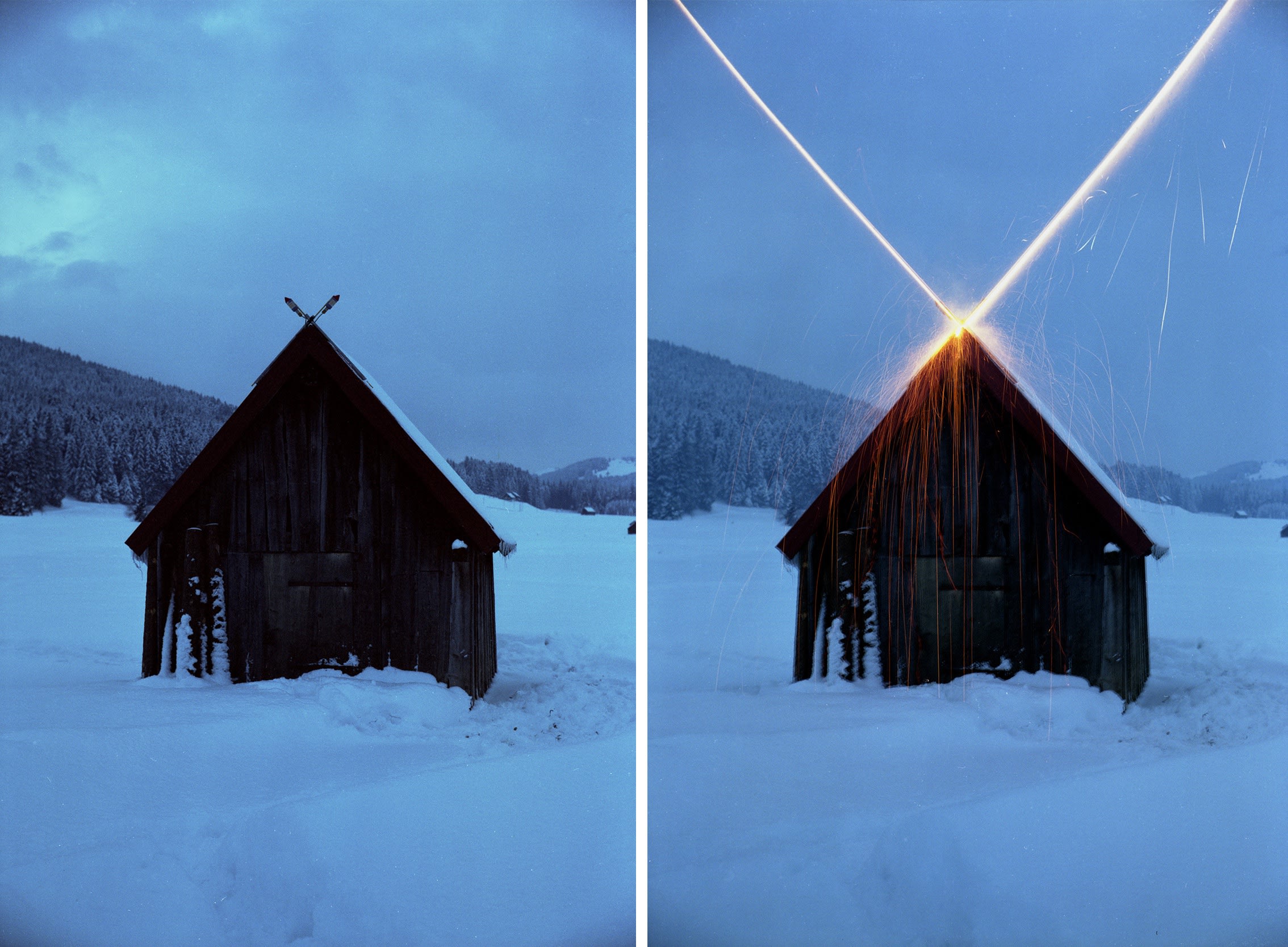NIALL MCCLELLAND
“HOT TAKES, NO SAX”
“… willingness is not effectiveness, nor is the appreciation of the value of work the only requisite for its well-doing.” “A crack on the head is what you get for not asking.”
CONTEXT
Not long before Thoreau, Walden was a site for outcasts, the discarded and disgraced, home to generations of those whose lives were dictated by fate alone. Self-reliance is romantic by choice, and not when it merely serves to prove the broken promise of another failed revolution.
Romantic notions of the universal, the rational, and the progressive, coupled with counter-culture, the local, and the spiritual, to bring forth a decade of ‘free love’. But peace, newness, democracy, community, and the power and unity of music, culminated in a perfect and deeply disturbed wrongness. This fake romance was fueled by the frenzy of blind optimism, led by an ego-fueled front of ‘revolutionaries’. Machismo is a terrorist in a suit, or a leather jacket, or a hoodie and shades. This monumental male ego – the Hero, the lone survivor – should have been obliterated by this: the umpteenth failed utopia.
If we know how terribly wrong it can go, do we dare pick a side? Perhaps it is safe only to heroicize the ‘average Jane’, the farmer who works hard and humbly, living a life that is self-propelled, self-motivated self-sustained. And yet, every hero story is slippery, particularly in its role as defender of Individual Freedom. We are not equal, and even those of us who could be called ‘free’ are only performing a version of ourselves. We work hard to belong to highly codified communities and carefully crafted high-context contrivances. Pseudonyms, acronyms, hashtags, bumper stickers, nicknames, catch-phrases. The aesthetic of anger and rage is just another brand in the rat-race. ACAB and the hero is flaccid, so pack your BOBs and run for the hills.
MOTIVATION
How do we define the art of an active frustration? What is the temperature of disappointment when it is disturbed enough to curb all opti- mism with a skeptic’s pride? We might liken it to room-temperature, an ambient measure of its surroundings. But it is not comfortable and not common. This work foregoes the dominant will of its time by using the language of art as both target and weapon. It is motivated by the simple resolve to get up every day and do something. Such clear determination is driven by an irregular balance of ambiguity and resolve.
THEORY
The work is not durational, but temporal. Engaged in constant exchange with the world outside, it spans the past and future instantaneously. In every moment it is wholly manifest. It does not traverse the course of time, but embodies time, so that it may become unreservedly present. The substance of everyday life is riddled with signs for us to read. We must not settle for merely contemplating its aesthetic. Owning what we say and do makes good work possible, all the time pointing towards a final, implosive, and desirable synthesis of passionate resolve and amnesia.
This behind-the-scenes take on Modernism is a backstage aesthetic. Its vernacular is based on fallen expectations and bull-headed declara- tions. That which is not art is stacked high and hollow, pointing its ornamental surface towards all that is not actually there. This particular condition of sculpture privileges nothing if not the materials, processes, and thoughts privileged by the artist. There is no end to the symbolism of ordinary cultural exchange. Theatre is what lies between it all.
RESOLVE
It seems the time has come to heed the battle cry for a total embrace of the unyielding obsession with tearing it down. The flattening of culture means a destruction of everything we have and do. The race towards the end is twisted, yes, but oh so attractive. Imagine if we could begin again! What a terrible thrill that would be. Imagine if we could replace it all with the beauty of the unknown. Imagine how kind, how whole and unified in our purpose we would be. What a thrill to cross the finish line and discover a completely new frontier, with only our presence required for it to become complete. Simple means and simple survival would be the name of the game. But alas, we are not delusional enough anymore to believe our course is a straight one. There is no actual ‘end’ in sight; no matter how much we wish, or even believe it so. In reality, everything merely goes on. All that we have to work with is already here. The perpetual moment-before-the-end is our burden to bare. Those of us who live in the past and those who will live out the future are not here now, so where is the point of comparison?
All we can do is show up, do what we must, and then do it all again. And if we can manage our responsibilities with some sense of urgency cou- pled with a basic human moral grounding, we might even begin to make some sense of this shit.
-Alex Bowron
1. J.F.H., ‘The Failure of ‘Back to the Land’, Blackfriars, Vol.27, No.321 (Dec. 1946), Hoboken, NJ, pp. 473-475. 2The Smiths, ‘Barbarism Begins at Home’, 1985.


